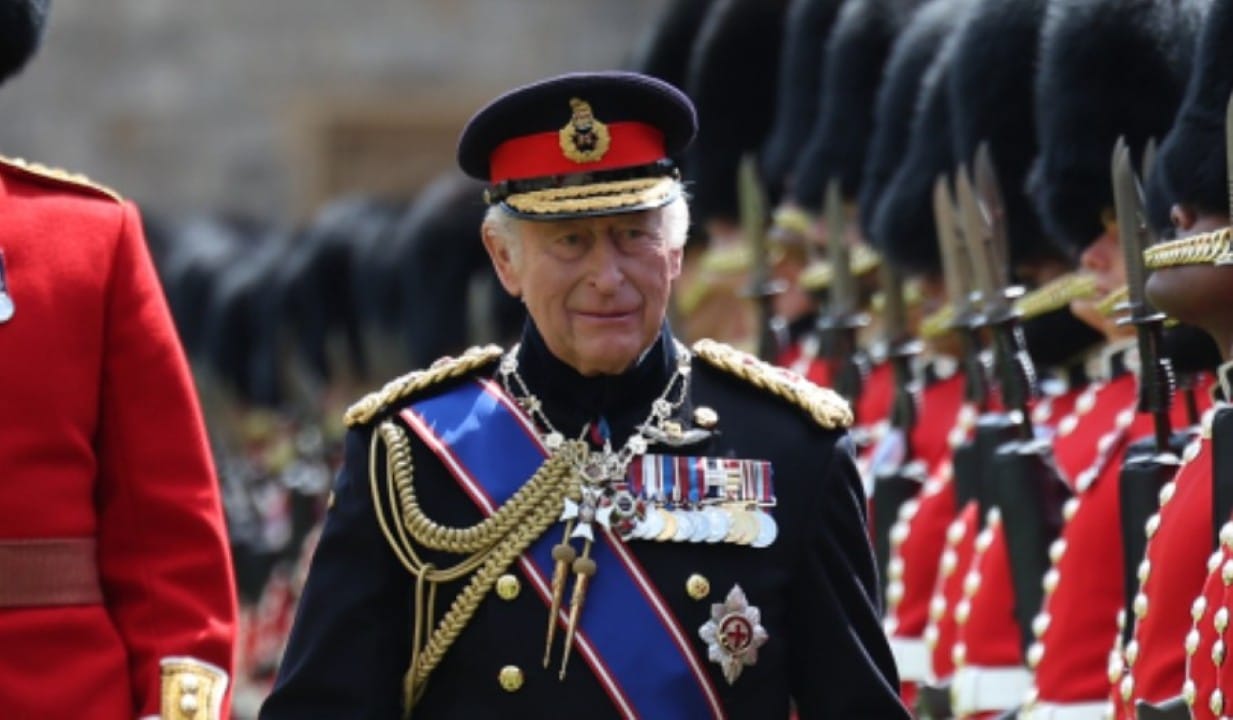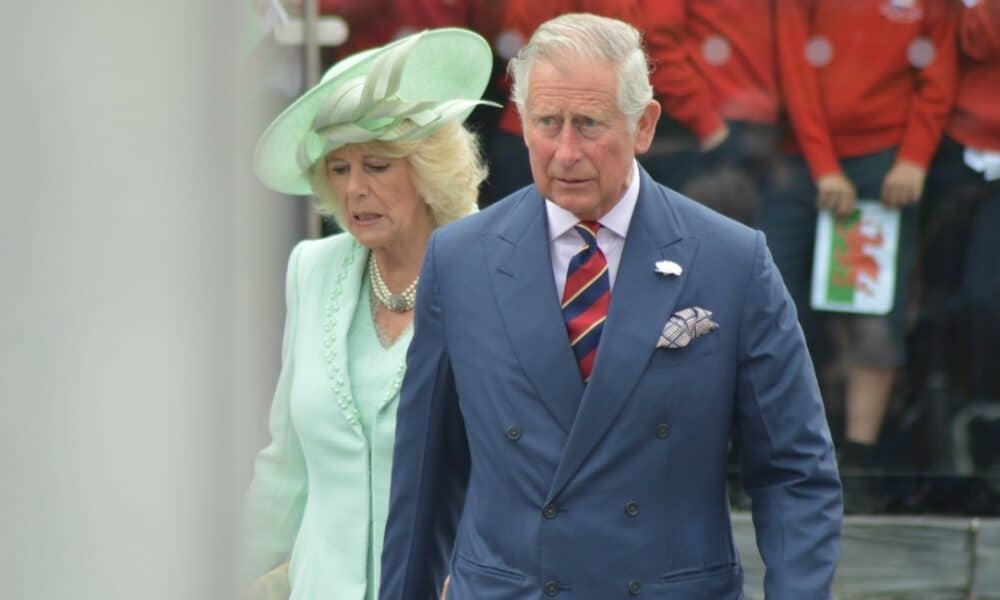Share
Tweet
Share
Share
In the United Kingdom, Charles III, the current monarch, does not need a passport, driver’s license, or to answer to legal proceedings, a unique privilege stemming from his role as head of state. This exemption, exclusive to the king, is tied to the tradition that documents and courts operate in his name, making it unnecessary for him to carry identification or face legal actions. The practice, rooted in centuries of history, reflects the structure of the British parliamentary monarchy, where the king symbolizes the state, while the government handles executive functions. Since ascending the throne in 2022, Charles III has maintained these prerogatives, which do not extend to other royal family members, such as Queen Camilla or Prince William. This peculiarity sparks global curiosity about the workings of the modern monarchy.
The absence of personal documents for the king is not merely a formality but a reflection of his singular position. Other royals, however, follow the same rules as ordinary citizens, carrying passports and licenses. This distinction underscores the monarch’s symbolic role, transcending everyday bureaucratic obligations.
Origin of the monarch’s exemptions
The exemption from passports and driver’s licenses for Charles III stems from a well-established practice in the British monarchy. In the UK, all passports are issued in the monarch’s name, bearing the inscription “His Majesty” or the initials “CR” (Charles Rex, in Latin). As the document is technically an authorization from the king for international travel, he himself does not need such permission.
This logic also applies to driver’s licenses. The UK’s Driver and Vehicle Licensing Agency operates under royal authority, and the monarch, as the source of that authority, is exempt from carrying the document. The tradition dates back centuries, when the sovereign was seen as the origin of all laws and regulations.
- Passports: Issued with the royal crest and mention of the monarch.
- Driver’s licenses: Registered under His Majesty’s jurisdiction.
- Diplomatic documents: Used by other royals, but not the king.
 Rei Charles – foto: Instagram
Rei Charles – foto: Instagram
While other royal family members, such as Kate Middleton and Prince William, require passports for international travel, Charles III moves freely, with his identity guaranteed by his position. This practice generates little controversy but sparks debates about the monarchy’s privileges in a modern era.
Judicial immunity: a medieval principle
Charles III also enjoys judicial immunity, shielding him from legal proceedings in the UK. This protection is not codified in a specific law but is a legal custom based on medieval traditions. The principle, known as “sovereign immunity,” establishes that the monarch cannot be sued or compelled to testify in court, as courts operate in his name.
Historically, the notion that “the king can do no wrong” justified this immunity. In British courts, criminal cases are registered as “Rex vs. Defendant” (King vs. Defendant), symbolizing that the monarch is the source of justice. Thus, suing the king would be, in practical terms, a legal contradiction.
This immunity extends to the monarch’s private life, though the separation between his public and private personas is complex. Since the 14th century, British kings have accumulated personal wealth, such as properties and assets, which can be inherited without state interference. This duality, however, has never been fully clarified, and immunity remains broad, covering both Charles III’s official and personal acts.
Exclusive privileges of the king
Beyond exemptions from documents and judicial immunity, Charles III enjoys other unique benefits. He does not need to renew licenses or fulfill bureaucratic formalities required of other citizens. This operational freedom reflects the monarch’s position as a symbol of the state, above common regulations.
However, these privileges are limited to the reigning king. Queen Camilla, for instance, holds a passport and must follow the same travel rules as other royals. The Prince of Wales, William, also carries identification documents, despite his proximity to the throne.
- International travel: Charles III is globally recognized without a passport.
- Royal properties: Immune to certain tax and legal regulations.
- Ceremonial acts: Performed without bureaucratic requirements.
- Security: Provided by the state, at no direct cost to the monarch.
These prerogatives, though symbolic, highlight the uniqueness of the king’s role in a monarchy that blends tradition with modernity.
Public reactions and debates
The exemption of Charles III from common obligations sparks curiosity and, in some cases, criticism. Republican groups in the UK, such as Republic, argue that such privileges reinforce inequalities in a society that values equality before the law. In 2023, a YouGov poll revealed that 26% of Britons support abolishing the monarchy, with some respondents citing the king’s exclusive benefits as a reason for dissatisfaction.
On the other hand, monarchy supporters argue that these exemptions are symbolic and do not affect government operations. The British monarchy, they claim, is a cultural institution that attracts tourists and strengthens national identity. In 2024, tourism related to the royals generated about £1 billion for the UK economy, according to VisitBritain.
The debate remains polarized. While some view Charles III’s privileges as a harmless tradition, others question their relevance in a world prioritizing transparency and equity.
History of the monarchy and its rules
The British monarchy has evolved over centuries, adapting medieval traditions to the modern context. In the past, kings like Henry VIII wielded absolute power, but the Glorious Revolution of 1688 established the parliamentary monarchy, reducing the sovereign’s role to ceremonial functions. Charles III’s exemptions are remnants of this past, when the king was seen as the embodiment of the state.
In the 20th century, Queen Elizabeth II also enjoyed these prerogatives, traveling without a passport and maintaining judicial immunity. Her long reign, from 1952 to 2022, reinforced the acceptance of these practices as part of British tradition. Charles III, upon assuming the throne, inherited these rules, which continue to define the monarch’s role.
The monarchy’s structure, though symbolic, retains cultural and political influence. The king, for example, sanctions laws passed by Parliament, a formal act reflecting his position as head of state. These functions, combined with the exemptions, ensure Charles III holds a unique place in British society.
International comparisons
Other monarchs worldwide face different rules. In Japan, Emperor Naruhito requires a passport for international travel, though he receives special treatment. In Sweden, King Carl XVI Gustaf also carries identification documents but, like Charles III, has limited judicial immunity.
In the UK, the absence of a written constitution makes these exemptions more flexible, based on legal customs. This peculiarity sets the British monarchy apart from others operating under more codified legal systems. The comparison highlights how British traditions uniquely shape Charles III’s role.
Monarchy funding
The monarchy’s funding is also tied to the king’s exemptions. In 2024, the royal family received £86.3 million from the British government through the Sovereign Grant, a fund to cover official expenses. This amount, equivalent to about R$560 million, funds travel, events, and palace maintenance.
Charles III does not pay taxes on these funds, though he voluntarily contributes taxes on his private income. The partial tax exemption, combined with judicial immunity, reinforces the perception that the monarch operates outside the rules applied to ordinary citizens.
Curiosities about Charles III’s reign
Charles III’s reign, which began in September 2022, has brought several monarchy peculiarities to light. Beyond exemptions from documents and immunity, the king upholds traditions that surprise the public:
- Coins and stamps: All feature the monarch’s image, reinforcing his symbolic presence.
- Mailboxes: Marked with “CR” on new installations.
- Royal ceremonies: Charles III presides over events like the opening of Parliament without legal requirements.
- Private properties: Include the Duchy of Cornwall, managed by Prince William.
These practices, though formal, illustrate how the British monarchy balances history and modernity, keeping Charles III at the center of a system that blends tradition and functionality.

